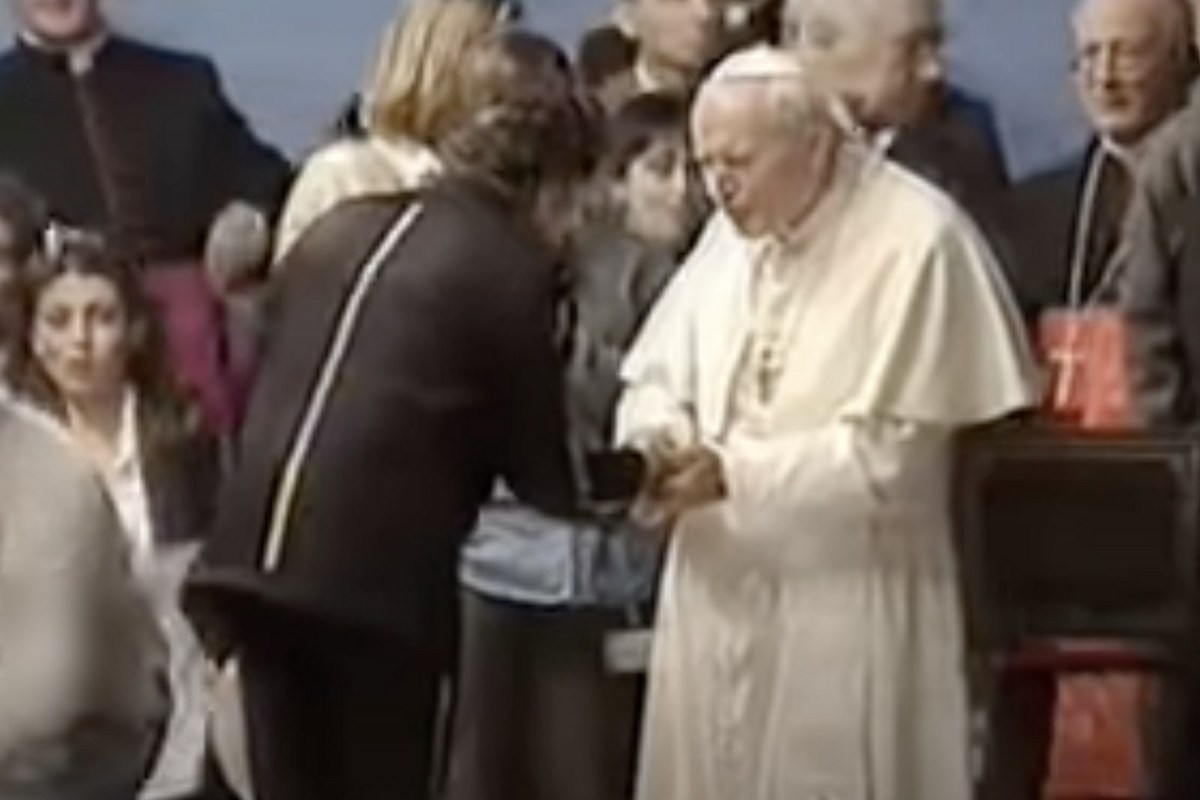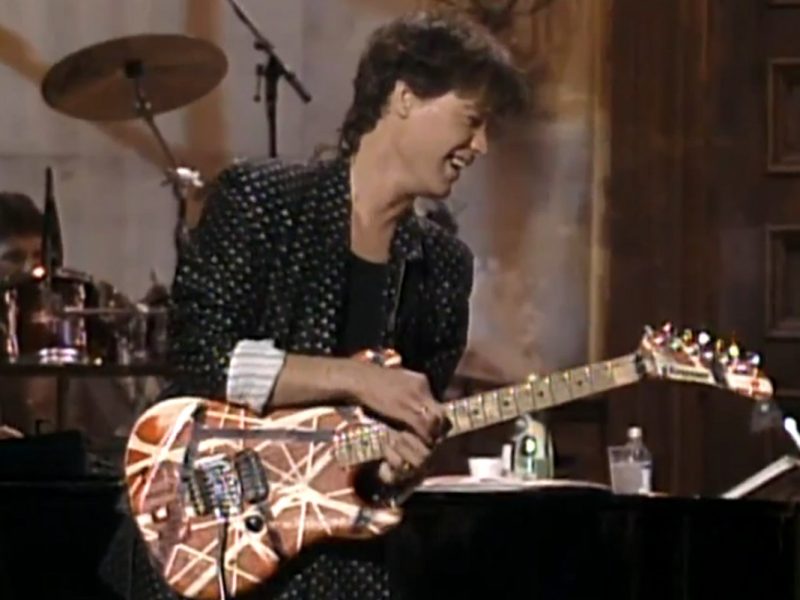Two emblematic figures of the 20th century met for the first time on Sept. 27, 1997: One was Bob Dylan, and the other was Pope John Paul II.
This curious moment took place in Bologna, Italy, where the 77-year-old pope was attending a Eucharistic Congress that was billed specifically for young people “and their music.” Roughly 300,000 Catholic youths were present.
Drummer David Kemper remembers the event as his very first gig with Dylan’s band. Dylan’s manager “Jeff Kramer called and said, ‘Bob would like you to join his band,'” Kemper told Rolling Stone in 2022. “I said, ‘Sure. How do we get going?’ He goes, ‘Well, we got a gig with the pope in Bologna.’ I said, ‘Say that again?’ He goes, ‘Yeah, the pope. John Paul II invited us to a Eucharistic Congress.'”
Before Dylan began his performance, the pope addressed the crowd: “You say the answer is blowing in the wind, my friend. So it is: but it is not the wind that blows things away, it is the breath and life of the Holy Spirit, the voice that calls and says, ‘Come!’
“You ask me how many roads a man must walk down before he becomes a man,” the pope added. “I answer: There is only one road for man, and it is the road of Jesus Christ, who said, ‘I am the Way and the Life.'”
Dylan and his band then took the stage, first performing “Knockin’ on Heaven’s Door,” followed by “A Hard Rain’s A-Gonna Fall.”
“We’re playing the first song,” Kemper recalled, “and I look and over to my left in the back corner, I saw John Paul sitting there. He was resting his head on his hands. I was thinking, ‘Is this guy alive? Is he listening? He’s out there for everybody to see.’ But Bob was on good behavior; I could tell. It was great. I enjoyed it completely.” Dylan then removed his cowboy hat and made his way up the steps to greet the pope personally, before returning to the stage for an encore of “Forever Young.”
Watch Bob Dylan Meet Pope John Paul II in 1997
Not everyone completely enjoyed it, however, including the future Pope Benedict XVI. Joseph Ratzinger, then a cardinal, admitted he was apprehensive about hosting Dylan and having him perform. “There was reason to be skeptical, and I was,” Pope Benedict XVI wrote in his 2007 book, John Paul II, My Beloved Predecessor. “Indeed, in a certain sense, I still am today.”
Particularly in the early days of his career, Dylan was often described as the voice of his generation, a symbol of personal and political revolution. He openly disliked and frequently dismissed these notions, but they formed the basis for Pope Benedict XVI’s worries over “whether it was right to let this kind of so-called prophet take the stage.”
Dylan’s relationship with religion had, at times, also been a subject of controversy. He grew up in a Jewish family, and though he never outwardly rejected Judaism, he also didn’t feel the need to analyze it much. “I’m a Jew,” he told The Washington Post in 1987. “It touches my poetry, my life, in ways I can’t describe. Why should I declare something that should be so obvious?”
Then, in the late ’70s, Dylan surprised his fans when he declared himself a born-again Christian. Three albums of evangelical-inspired music followed: 1979’s Slow Train Coming, 1980’s Saved and 1981’s Shot of Love. Then Dylan abruptly went back to recording mainly secular music and speaking little about religion.
“People call you this or they call you that,” he told Rolling Stone in 1984, “but I can’t respond to that, because then it seems like I’m defensive – and, you know, what does it matter, really?”
Still, as Dylan saw it, he and the pope weren’t all that incompatible. They just saw things from a different point of view. “Here’s the thing with me and the religious thing,” Dylan told Newsweek in 1997. “This is the flat-out truth: I find the religiosity and philosophy in the music. I don’t find it anywhere else.
“Songs like ‘Let Me Rest on a Peaceful Mountain’ or ‘I Saw the Light’ – that’s my religion,” he added. “I don’t adhere to rabbis, preachers, evangelists, all of that. I’ve learned more from the songs than I’ve learned from any of this kind of entity. The songs are my lexicon. I believe the songs.”
Bob Dylan ‘Bootleg Series’ Albums
His many studio and live albums tell only part of his story.
Bob Dylan Released One of Rock’s Most Hated Albums



